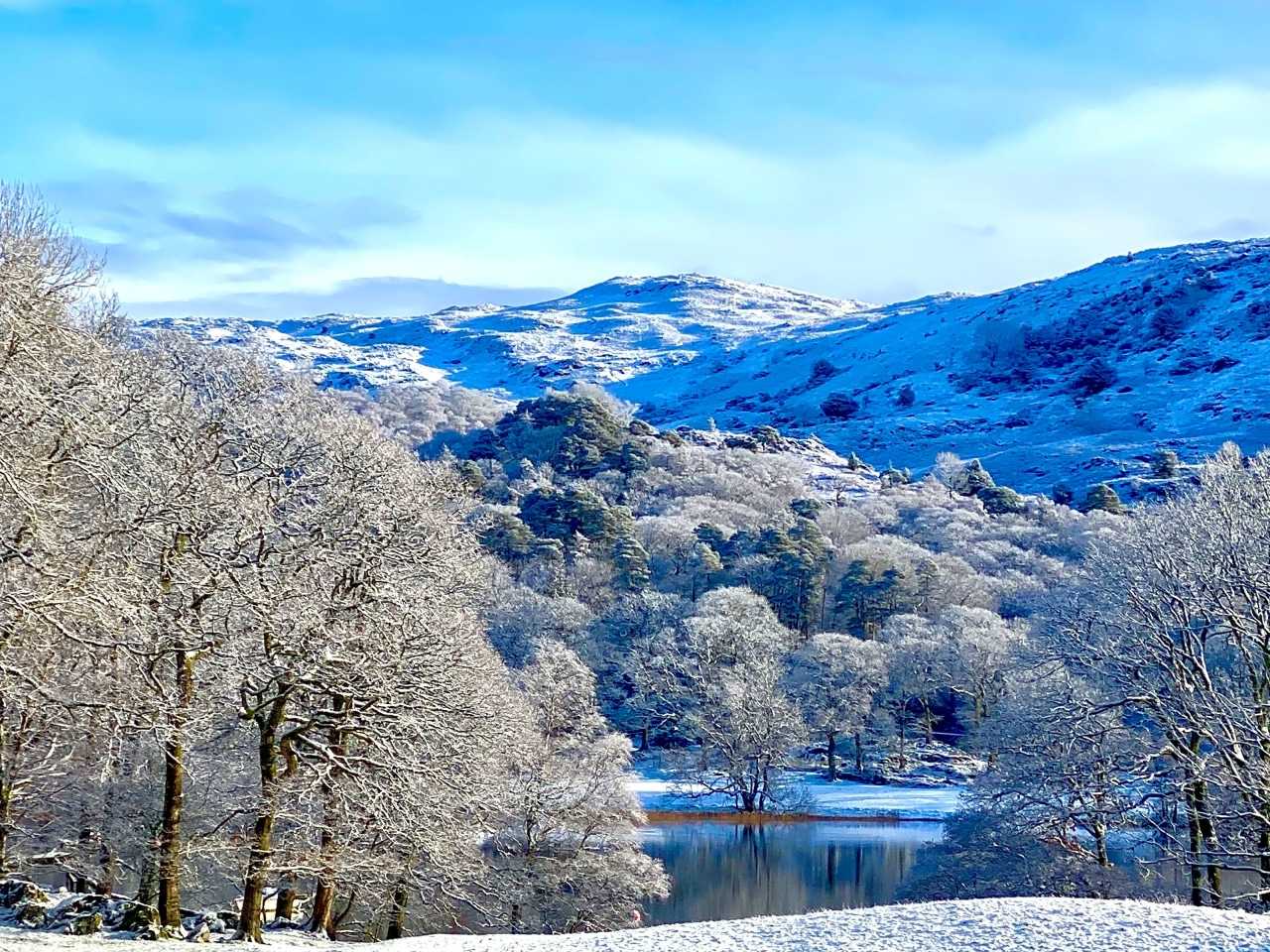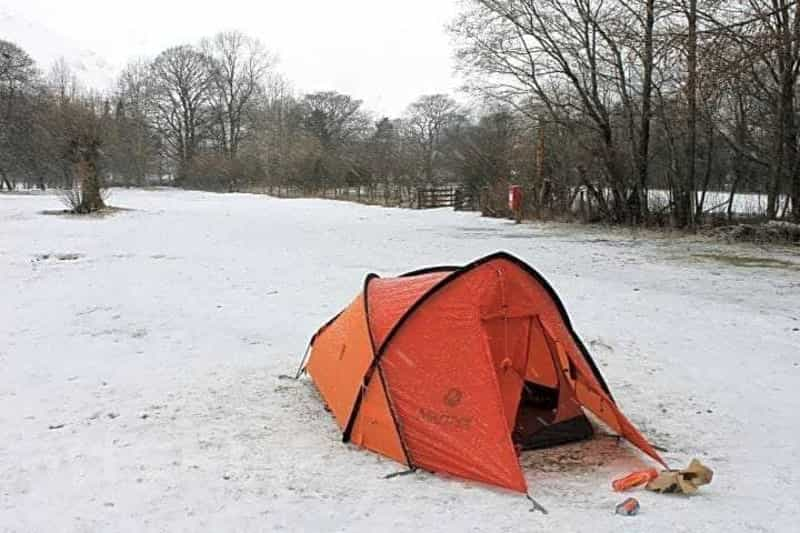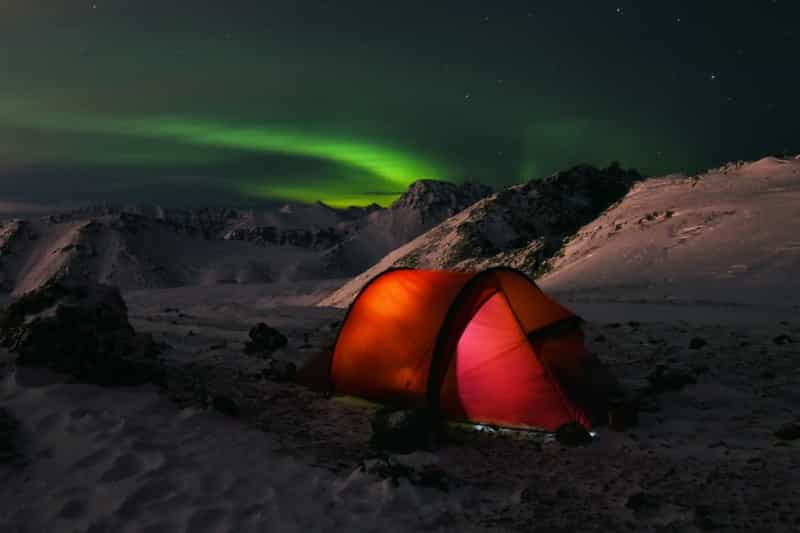8 tips for choosing a winter tent
Preparing for a winter camping trip? Whether you’re heading to the mountains in search of snowscapes or just looking for a quieter time for a break, you’ll want a tent that’s suitable for camping in colder weather.
New to cold-weather camping? Our winter camping guide is full of tips and tricks to help keep you safe and warm, including recommendations for the rest of the kit you’ll need for a positive experience.

Things to consider when buying a winter tent
1. Decide whether you need a three-season or a four-season tent
If you are planning on camping in winter, you are probably not a typical fairweather camper – but what kind of terrain and conditions are you anticipating for your camping trips? Four-season tents are the gold standard for withstanding strong gales, snowstorms and other forms of extreme winter weather. They often come with less mesh and more solid fabric for extra warmth. If you are planning on camping at high altitudes, in all weathers or when there is likely to be snowfall, you might want to invest in a four-season tent.
However, three-season tents are also suitable for many winter camping trips and will be fine in most conditions at most UK campsites. The name ‘four seasons’ suggests that these tents will be necessary in winter, but if you are just looking for a tent that is able to withstand wind and rain while still being breathable and lightweight, a three-season tent should be fine.
2. Does it have a single or double wall?
Most three-season and four-season tents will have a double wall – i.e., they will have two separate fabric layers, an inner sheet and a rainfly. This brings a number of benefits for winter camping. The first is that air gets trapped between the two layers, insulating your tent from the cold outside air; there is also the fact that the inner tent layer is breathable, significantly reducing condensation.
There are also advantages to single-wall tents for winter camping, however. Single-wall tents are faster to put up because they only have one layer, which means they are easier to pitch in storms or high winds. They are also lighter, although they are more prone to condensation than double-wall tents.
If you are going somewhere cold but dry, a single-wall tent is probably best. In damp and wet environments, pitching a double-wall tent may be worth the extra effort.
3. Is it waterproof?
Precipitation is more likely in winter, so make sure that any tent you buy is sufficiently waterproof. Check the manufacturer’s waterproof rating, measured in millimetres (1000mm is considered acceptable for very light rain, with 10,000mm being the maximum possible rating). If there is a built-in groundsheet, check the quality of the material and make sure it is tough enough, as any breaks could lead to water ingress. Make sure to pack a few emergency repair patches just in case the tent or groundsheet spring a leak.
4. What colour is it?
This sounds like a question of choice, but if you are going to an extreme environment (such as a mountain), it’s a good idea to find a brightly-coloured tent that you can easily see in a blizzard or that could be spotted from afar by the emergency services if you get into trouble.
5. Which tent design is best?
You will want a tent that is suitably sturdy. Very large tents like bell tents will probably not be appropriate – instead, look at robust designs like dome tents or tunnel tents. Geodesic tents are also very good for winter camping – they typically have more pole crossover points than either dome tents or tunnel tents and are among the strongest tent structures out there.
6. Find the right size
When camping in the winter, you will probably be bringing a lot of extra equipment, including warm layers, blankets, coats and perhaps even sports equipment like skis, ice picks and crampons. All of that takes up space, so you’ll need to find a tent with enough room (and possibly a separate porch/vestibule) for storage.
However, there is an important trade-off to be made here, because the smaller your tent, the less time the air inside will take to heat up. As a result, large family tents are best avoided for winter camping.

7. Check the ventilation
It may seem counterintuitive, but it is important to ventilate your tent properly during winter. Condensation build-up can cool down your tent and even freeze, so it’s important to find a tent with adequate windows or vents. Ideally, try and find a tent with full zip-covered openings for extra flexibility so you do not have to leave them open at all times.
8. Check the weight
This will be more important for some winter campers than others. If you are planning on ski touring, trekking or mountaineering, you will definitely want as light a tent as possible. However, if you are planning to drive to your campsite, this may be less of a concern.
For more information about choosing a tent, see our main tent buying guide.
Winter tent pegs
In winter, wire tent pegs (the ones shaped a bit like the number 7 that often come included with the tent) will not be much good as they are likely to come loose in the ground. You will need an alternative, and depending on the environment where you will be camping, you may find ice pegs, snow pegs or ground anchors helpful. For more information, see our guide to choosing the right tent pegs.
Useful links
Pitchup campsites open all year

FAQs
How much do winter tents cost?
Good three/four-season tents typically cost more than summer camping tents. If you are planning to buy a specialist mountaineering tent, or an ultralight and durable four-season tent for ski touring, you can expect to spend over £500. However, it is very possible to get a good three-season tent for between £100 and £200.
Do I need a four-season tent to camp in winter?
Four-season tents are designed for the most extreme environments and weather conditions. If you are going camping in the mountains, for example, you will need a four-season tent. However, at most UK campsites, a three-season tent will be enough for all but the most extreme weather conditions.
What accessories should I look for in a winter tent?
-
Vents to ensure good airflow throughout the night and to avoid condensation
-
Tent repair patches so you can stop any unexpected leakages
-
Specialist winter pegs (snow pegs, ice pegs or ground anchors)
What tent design is best for winter camping?
Good tent designs for winter camping include dome tents and tunnel tents. Geodesic tents, however, are probably the strongest available, although their extra poles could add some weight to your overall kit.
Are pop-up tents suitable for winter?
No – most pop-up tents are not strong, waterproof or well-insulated enough to be used in winter conditions.